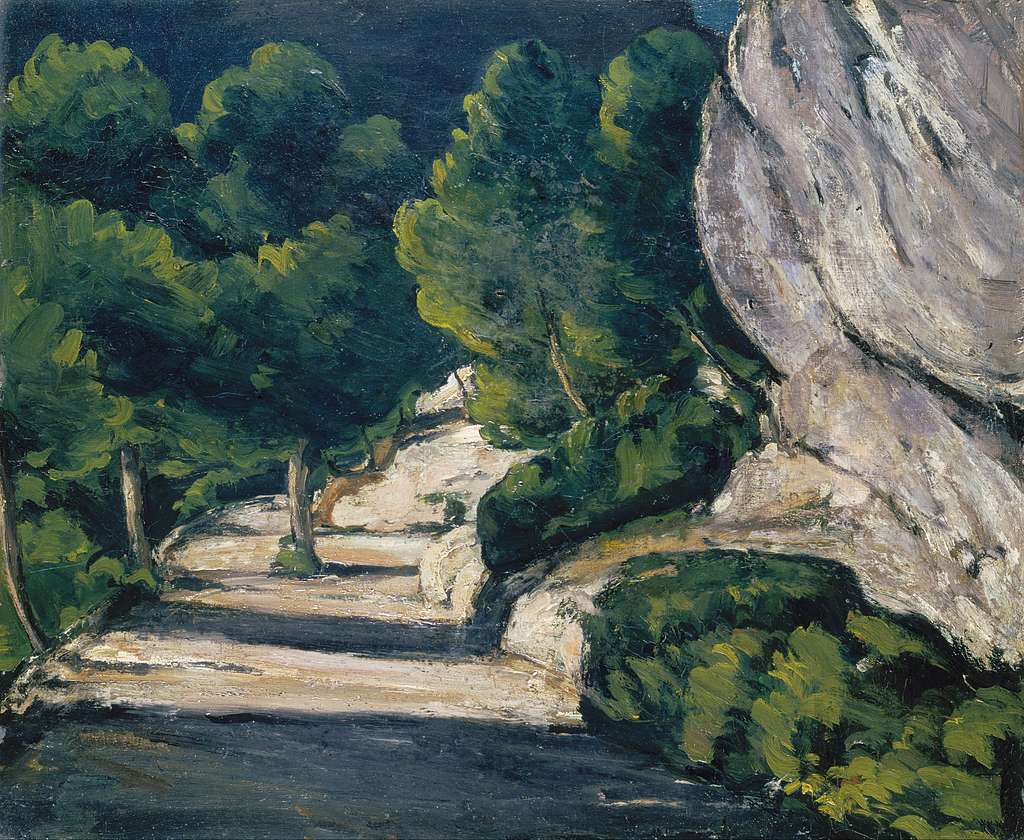This essay was delivered as the commencement address at Canterbury Classical School’s spring commencement.
What will make you happy? At the beginning of Augustine’s Confessions, he identifies this universal human question. In his context, he uses the example of a soldier going to war versus a person who refrains from going to war. They make different decisions: the one who goes to war is seeking happiness in glory or honor; the one who refrains is seeking happiness in life and comfort. But the common root is a desire to be happy.
And so it is with you: some of you are going to college to seek a happy life. Others are not going, or at least not yet, to seek happiness. Every decision in every moment is a desire for happiness.
As you commence on this journey of life, what do you think will make you happy? If you know that answer, the direction of your life is set.
This question of happiness is a question people ask throughout their lives, and it’s a question that will be especially relevant during your years as a young adult. Will this college make you happy? Will this major or career bring happiness? Is this person whom you’re dating going to give you satisfaction for life? Will this place lead to joy? There are so many uncertainties for you as a young person. And there are so many options to explore for your happiness.
Here is a brief smattering of contemporary answers:
You, and you alone will make yourself happy. Don’t trust other people. Don’t trust people who came before you—whether they be biblical writers, or philosophers, or your own parents. They’re out to deceive. Trust yourself. You are reliable. You are unbiased. Everybody else is trying to oppress you. Discover for yourself the meaning and purpose of life, morality, wisdom, happiness. No one can tell you. You do you. You’re alone in this heartless, soulless, helpless world.
Another story is that money will make you happy. Colleges advertise this in subtle ways—the “professional” (read: lucrative) careers are highlighted, the success rate of getting a job, all the wealthy people that graduated from the institution. No doubt, you’ll come home from college at Thanksgiving break and be asked your major and then, “What are you going to do with that?” And whatever you do with that, it better be practical and make sense: in other words, make money. Because the promise is that if you make a good amount of money, then you can buy a good house to attract a good spouse to have good kids to send to a good school so that they can have a happy life like you have. And it all starts by being in a happy income bracket.
Or maybe it’s not money but a career. You want a fulfilling, good career, one that’s other centered and service oriented. You’re not driven by money like those other people. You’re driven by purpose. So you look to a career to make you happy. By doing this thing or teaching these kids or working on this problem, that will bring you satisfaction.
But these routes to happiness are flawed. You’ll never be yourself enough or rich enough or free enough or fulfilled enough. You’ll let yourself down and only have yourself to blame. Or you’ll meet someone with more money or with more success and feel like a failure. Or your job or boss won’t appreciate you or value you, or you’ll get fired, and your career hopes and dreams will leave you sad, depressed, your life over.
The late novelist David Foster Wallace put it like this in a commencement address he gave nearly twenty years ago. He didn’t talk about happiness. This agnostic called it worship:
If you worship money and things, if they are where you tap real meaning in life, then you will never have enough, never feel you have enough. It’s the truth. Worship your body and beauty and sexual allure and you will always feel ugly. And when time and age start showing, you will die a million deaths before they finally grieve you…. Worship power, you will end up feeling weak and afraid, and you will need ever more power over others to numb you to your own fear. Worship your intellect, being seen as smart, you will end up feeling stupid, a fraud, always on the verge of being found out. But the insidious thing about these forms of worship is not that they’re evil or sinful, it’s that they’re unconscious. They are default settings. They’re the kind of worship you just gradually slip into, day after day, getting more and more selective about what you see and how you measure value without ever being fully aware that that’s what you’re doing.
You see, no one sets out to be miserable. But time and age and false worship can gradually wear us down. When we’re fed messages of happiness all the time, we can slowly start to think, “You know what? Maybe money or success or career or my looks will make me happy. Other people seem happy, and they have those things.” And you will always end up dissatisfied, discontent, unhappy. You don’t have to listen to me, of course. You can try it out. But part of growing up, maturing, is listening to these voices from the past and realizing, “Maybe they’re right?”
Back to Augustine. Augustine was an ambitious man. He sought to fill his life with happiness—whether that be career or sexual exploits or companionship. He sought love in all the wrong places. Until he came to the end of himself in a garden. And then he realized: happiness seeks him out. He doesn’t need to go seek it elsewhere; Joy is the One who pursues him.
For Augustine, here is the happy life: loving the right things in the right order. It’s not wrong to love beauty or your career or intellect. But if you love your career more than you love your family, your life is going to be disordered. Or if you love your friendships more than you love God, then you’re going to put expectations on them that they can never carry and you’ll never be satisfied.
What Wallace and Augustine are both getting at is this: you can’t not want a good life, you can’t stop loving, you can’t not worship. But you can direct your loves to the right end. It’s by loving the right things in the right way that can set you free.
What Wallace and Augustine are both getting at is this: you can’t not want a good life, you can’t stop loving, you can’t not worship. But you can direct your loves . . . It’s by loving the right things in the right way that can set you free.
My original question if you remember was this: what will make you happy? Here’s my meager advice: A happy life is not something out there in the future. It’s not something you make, even. A happy life is something you receive. It’s something right here, all around you, present to you every moment. One of my favorite verses in the Bible is in 1 Corinthians 4: What do you have that you did not receive? Answer: Nothing.
The fact is you live a graced and given existence. You didn’t earn a single bit of it. You didn’t deserve to be loved by a family or born here or have the intellectual skills to graduate or the musical taste to develop. All of it was received and nurtured in you by your family first and by this whole community surrounding you. Was it perfect? No. Are your parents perfect? Certainly not. Is Asheville perfect? No. Was Canterbury perfect? Almost. But still no. But here’s what I know: they are good. And it is good for you to exist.
The good life is the one you have; it lies in seeing that the life you have is the one you want. It starts by seeing the grace of life all around you.
So graduates, you have been given a life, so live it. You don’t need to manufacture happiness or success as if that will make other people proud of you or justify your existence. You’ve been given a life, so enjoy it. Revel in life—love the broken things around you. Your life will not be perfect, but work for its goodness. Work to leave things better than you found them.
And by God’s grace—through suffering and joys, conflict and resolution, pain and sorrows, failures and successes—you’ll look back on your life, and you’ll realize it wasn’t perfect—just like life in the present. But in looking back, I pray you’ll realize it was good. And you’ll be grateful. And I hope you’ll taste some of that gratefulness today.
Image Credit: Paul Cézanne, “Road With Trees in Rocky Mountains” (1870-1871) via Städel Museum





